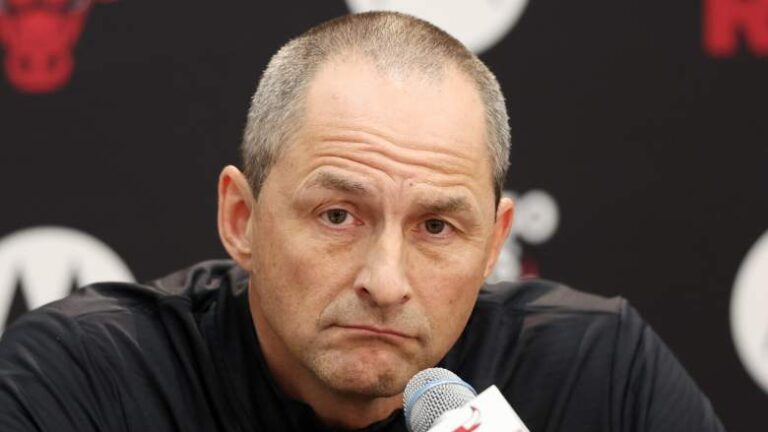In a twist that’s turning heads across the NBA, the Chicago Bulls shockingly rejected a trade deal involving Denver Nuggets forward Michael Porter Jr.—a move that could’ve dramatically reshaped their roster. The deal was reportedly floated last season, as the Denver Nuggets were actively exploring options to offload Porter and his colossal $179 million contract.
According to longtime NBA insider Sam Smith, Porter was nearly shipped to Chicago in exchange for Zach LaVine. Smith speculated the Bulls were the targeted trade partner, stating, “I’m pretty sure they were trying to trade him to the Bulls for Zach LaVine this season.” But the front office pulled the plug.
Why? It boils down to a red flag that keeps flashing: durability. While Porter has shown elite shooting skills, his track record with injuries remains a sticking point—something that looms large in high-stakes negotiations. Despite averaging an impressive 18.2 points and 7.0 rebounds last season, critics argue he’s overpaid for a skill set that lacks playmaking and defensive prowess.
“He’s poor with the ball, doesn’t handle or pass well and I’d stay away from him,” Smith added, backing the Bulls’ decision.
That choice speaks volumes, especially considering Bulls executive Artūras Karnišovas was directly involved in drafting Porter back when he served in the Nuggets front office. Few know Porter’s injury history better than Karnišovas—so the rejection becomes less about talent and more about risk mitigation. The executive’s intimate knowledge of Porter’s medical file may have been the deciding factor in steering clear of the deal.
This wasn’t the first time Porter expressed interest in joining the Bulls, either. During his draft process, he posted photos wearing Bulls gear, sparking buzz that he hoped to land in Chicago. But concerns around his back—stemming from high school and requiring surgery in college—caused his draft stock to plummet.
Despite that rocky beginning, Porter rebounded to help the Nuggets capture the 2023 NBA title. His performance in those Finals was a mixed bag: two double-doubles but a cold 14.3% shooting from three. Still, his availability over the past two seasons has improved, logging 158 of a possible 164 games. Is the worst of his injury woes finally behind him?
Maybe—but not convincingly enough for the Bulls.
Instead of landing Porter, Chicago dealt LaVine to the Sacramento Kings in a three-team deal involving the San Antonio Spurs. That move has opened doors for young talent like Matas Buzelis to shine, possibly setting up a more financially sustainable future.
Could Porter still be in the Bulls’ crosshairs? It’s possible, especially if he strings together another mostly healthy season. But the team’s initial hesitation signals a deeper strategic pivot: avoiding big-name gambles in favor of building around youth and cap flexibility.
In a league where superstars often change teams as fast as sneakers, Chicago’s decision to pass on a flashy trade might actually reflect smarter long-term thinking. Still, fans and analysts are left wondering: will the Bulls regret saying no if Porter fully rebounds and returns to elite form?
